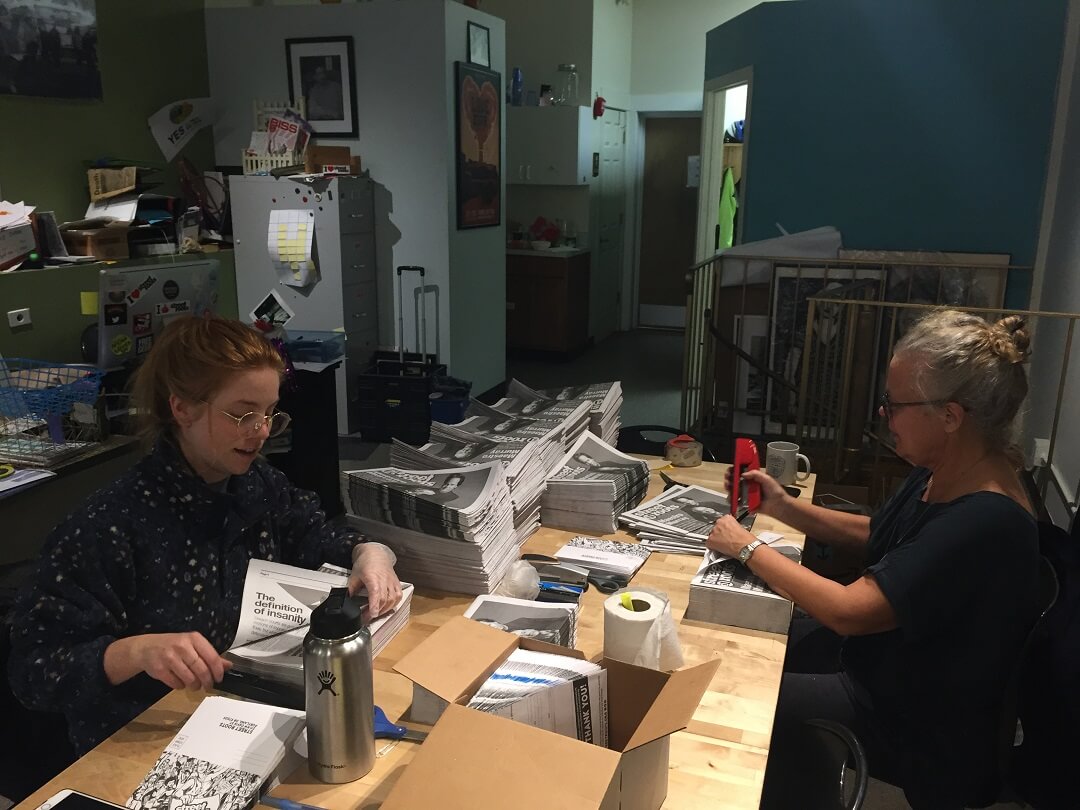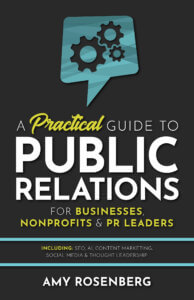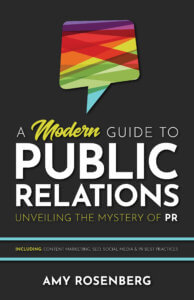![A weird & kinda random conversation about SEMpdx’s Engage Conference [Minicast]](https://www.veracityagency.com/wp-content/uploads/Amy-Rosenberg-Engage-Podcast-2019.jpg)
A weird & kinda random conversation about SEMpdx’s Engage Conference [Minicast]
What Should I Talk About?!!
What can I tell you about digital PR that you didn’t already know?
What do you think about 3 Hacks to Win the Digital PR Game?
How about What is Digital PR?
Your Top 10 Questions Answered?
Or maybe 6 Ways Digital PR Can Save Your Business in 2019?
I am speaking again at this year’s Engage Conference and if it seems like I am hunting for a presentation topic, I am. This year my general topic is Digital PR and I want to get started on putting my deck together.
And who loves you? Since I’m speaking, you can also use my speaker discount “ROSENBERG” to get another $100 off your ticket.
Last year’s presentation was How to PR Your Way to the Top of Google. You can check out the video below or see more particular on our Engage page from 2018 (there is a discount code).
What’s My Topic?
So, back to my original question. What Digital PR questions do you want to see covered? Maybe you’re a local business owner that has a question. Or your fellow PR pro and wanting to know the latest trends. Maybe you’re someone working in marketing and want some advice on PR tactics that can be applied online?
Reach out and contact us in an email, phone call, LinkedIn post, or in a Tweet.
What is the Engage Conference?
Oh, you may be wondering what is the Engage Conference?
Thankfully, I am married to someone who has been affiliated with the event for more than a decade. Mike is currently on the advisory board for the Search Engine Marketers of Portland (SEMpdx), which is the nonprofit that hosts the event.
The Engage Conference was formerly known as Searchfest, and this will be its 13th year. They switched its name from Searchfest to Engage a few years
And now the conference has even outgrown its one-day. Beginning this year, it will be a two-day conference packed with some of the biggest names in digital marketing but at about ⅓ the cost of similar conferences.
“It was an amazing one-day conference but because it was so amazing, we’ve added a second day this year,” Mike said. “More opportunities for great content, opportunities for more keynotes, more parties. Oh, and more networking opportunities and all that stuff. So, more of everything and not much more of a ticket price.”
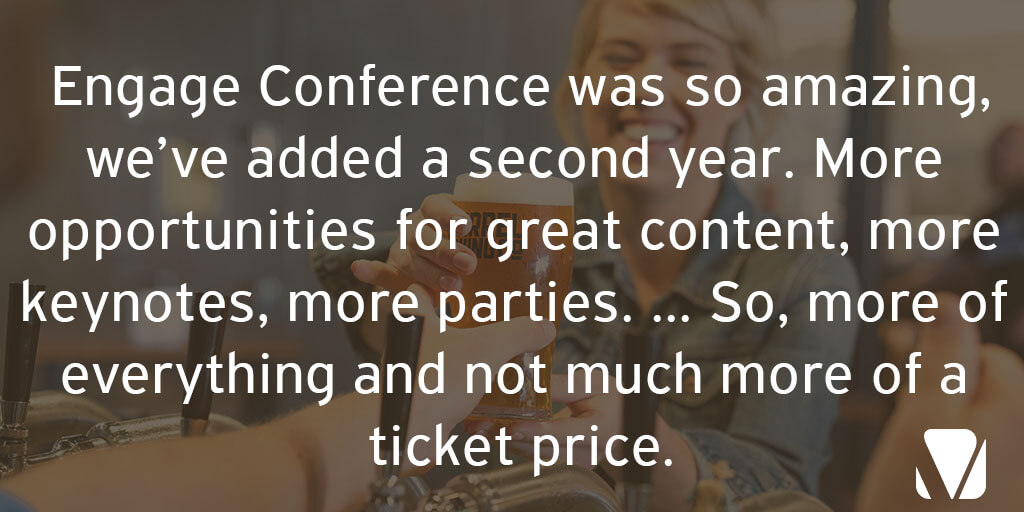
Why should you attend the Engage Conference?
Well, I did mention that I was speaking, right?
Seriously, it is two days and four concurrent tracks. There are session topics for wherever you work in the marketing/sales funnel. There are sessions about social and building a brand. There are sessions on content marketing. There are technical SEO sessions. There are sessions on conversion rate optimization, and making a sale. There are sessions oriented toward enterprise businesses, and sessions for small, local businesses.
The Engage Conference is like Oprah. There are sessions for everyone. You get a session. And you get a session.
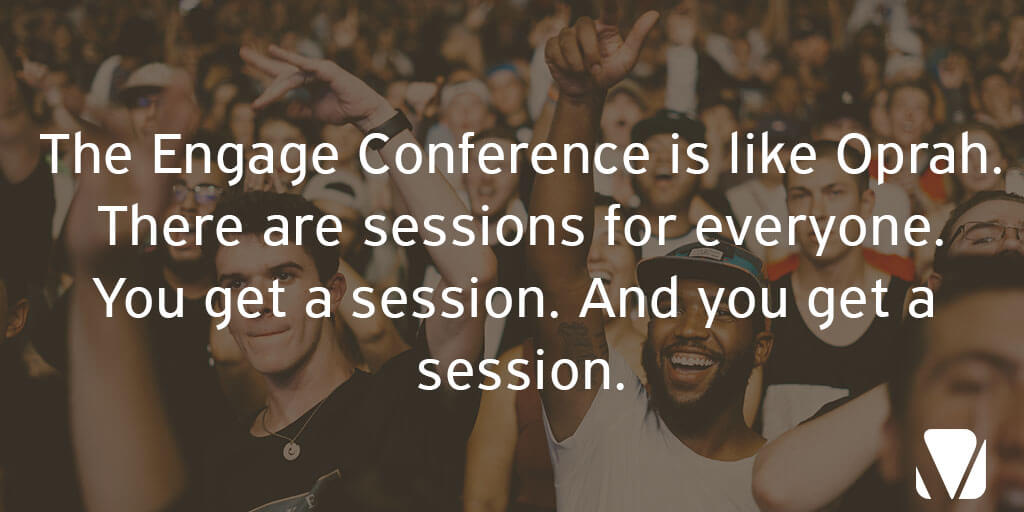
Why you should buy your ticket now?
Exciting stuff, right? And we haven’t even talked about the keynote speakers, the free session videos after the event, the after party, the pub crawl, meeting awesome folks who will become friends for a lifetime and so much more.
But you shouldn’t wait too long. Ticket prices increase on Friday, Feb. 1. And it’s hefty increase so you should buy your tickets now. The event is March 7th and 8th at Portland’s Sentinel Hotel.
Seriously, what should I talk about?
This episode of PR Talk is brought to you by PRSA Oregon
Throughout Oregon and Southwest Washington, PRSA provides members with networking, mentorship, skill building and professional development opportunities – whether you are a new professional fresh out of college or a skilled expert with 20 years in the industry. Check out PRSAoregon.org for more information on how membership can help you grow and connect.
PR Talk is sponsored by monday
In such a fast-paced, multi-faceted work environment, it can be tough to stay on top of everything. monday is the collaboration tool trusted by businesses of all kinds to help cut down the clutter and streamline productivity. Learn more at monday.com and signup for a free trial. You’ll see in no time why so many teams around the world are choosing monday for their project management needs.
PR Talk listeners can use the coupon code BetterExecute for a 15% discount.

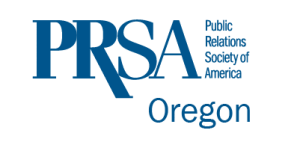

![Mac Prichard: Prichard Communications [Podcast]](https://www.veracityagency.com/wp-content/uploads/PR-Talk-Podcast-Prichard-Communications.jpg)

![Role of Ethics in Marketing [Minicast]](https://www.veracityagency.com/wp-content/uploads/NYT-Truth.jpg)
![Misty Tompoles: Artslandia [Podcast]](https://www.veracityagency.com/wp-content/uploads/podcast-misty-tompoles-artslandia-feature.png)
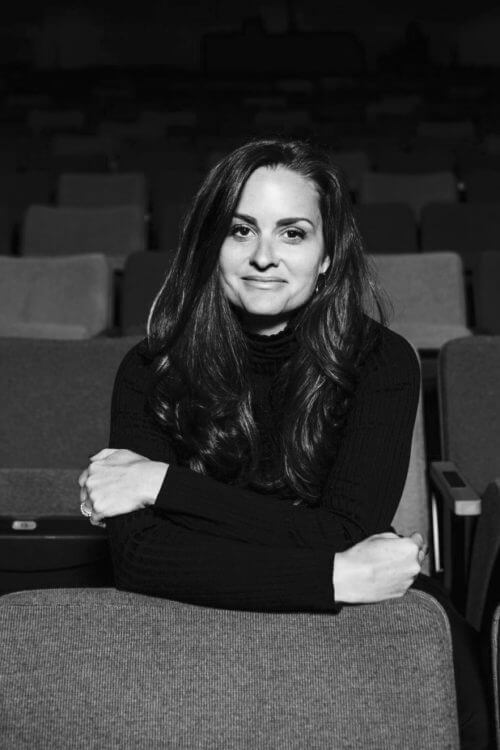
![Mark Garber: Pamplin Media Group [Podcast]](https://www.veracityagency.com/wp-content/uploads/Mark-Garber-Photo-by-Jon-House-707x530.jpg)
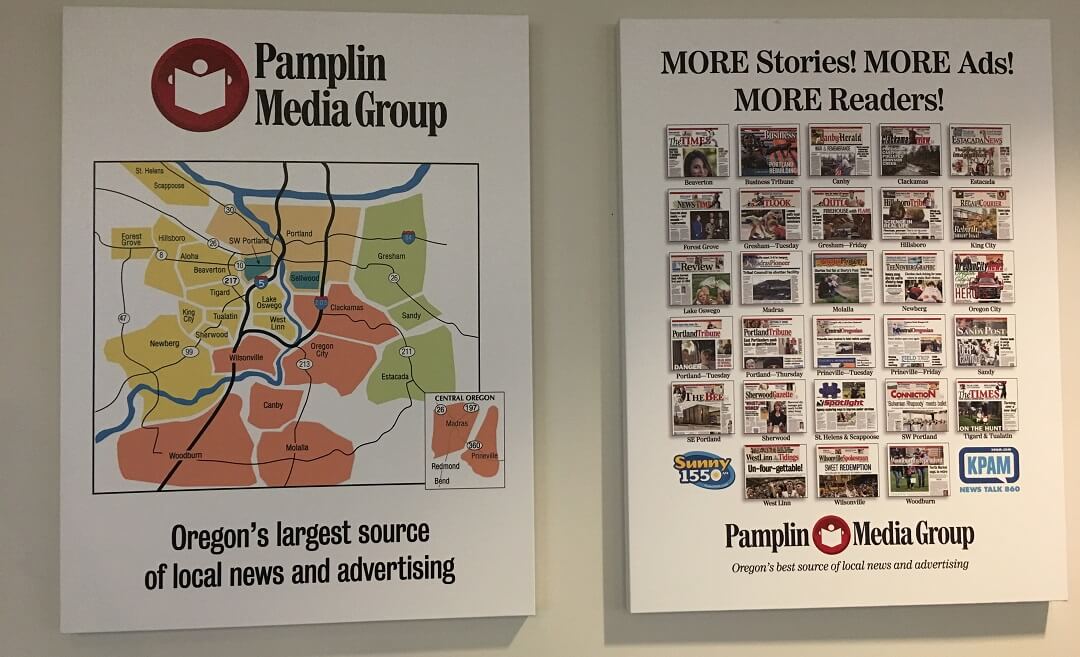

![Kaia Sand: Street Roots [Podcast]](https://www.veracityagency.com/wp-content/uploads/Kaia-Sand-Street-Roots-PR-Talk.jpg)
